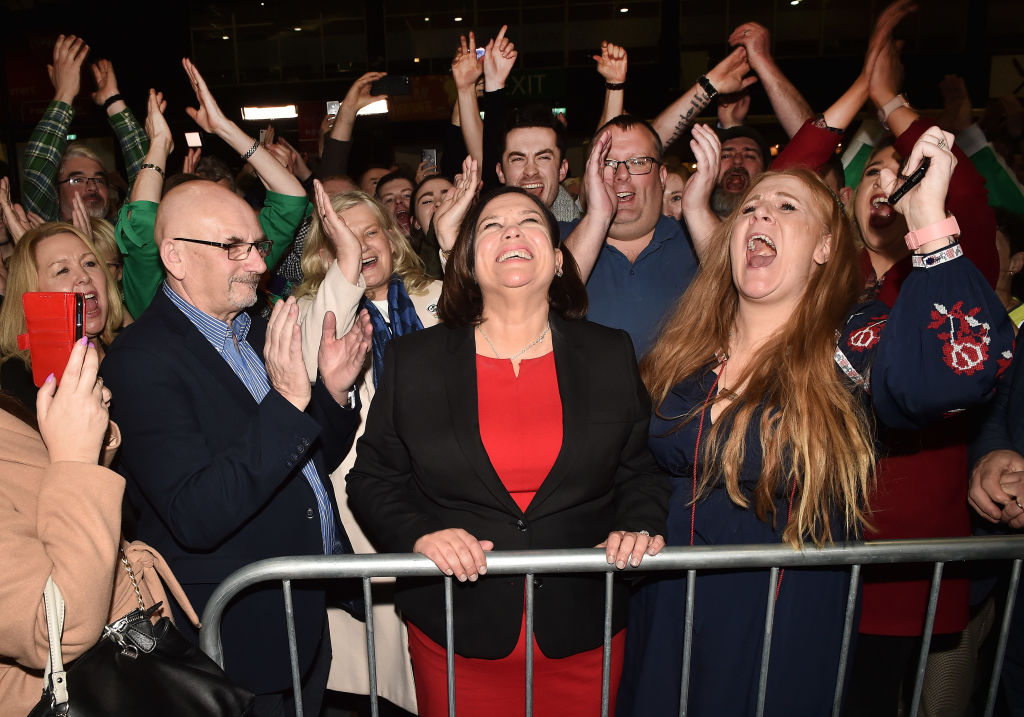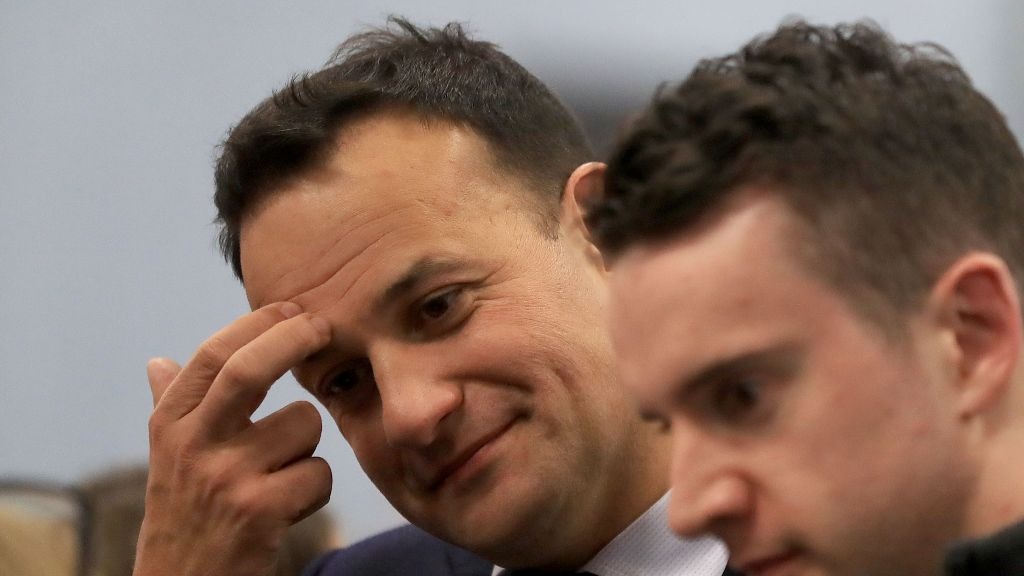SINN FÉIN are officially the most popular political party in Ireland after the weekend's General Election resulted in a stunning victory for the former underdogs.
Two years after Mary Lou McDonald replaced Gerry Adams as Sinn Féin leader, her party has jumped from 13.8% preference in the 2016 General Election, to topping the polls in 2020 by winning over a quarter of the total First Preference votes.
It is the first time in the history of the Republic that a party other than Fine Gael or Fianna Fáil has won the popular vote.
 Sinn Féin leader Mary Lou McDonald celebrates a stunning victory (Photo by Charles McQuillan/Getty Images).
Sinn Féin leader Mary Lou McDonald celebrates a stunning victory (Photo by Charles McQuillan/Getty Images).While counting is still underway, the first preference votes are complete, and at the time of writing Sinn Féin have 29 seats, Fianna Fáil have 16 and Fine Gael have 14. There are still 82 seats to be filled however, and Sinn Féin did not run enough candidates to have a majority-- something which the party must now regret.
The Exit Poll, which was released just after polling booths across the country closed on Saturday night, had initially suggested that SF, FG and FF were neck-and-neck at 22%, with less than a percentage point between each of them.
However, as was a theme in this election, the support for Sinn Féin was underestimated and the party ended up with 24.5% of First Preference votes, ahead of Fianna Fáil at 22.2% and with current Government Fine Gael trailing behind with 20.9%. Party leader Leo Varadkar was not elected until the fifth count, making him the first outgoing taoiseach in history not to be re-elected on the first count.
 Mr Varadkar waits to hear the news of his re-election (Donall Farmer / Getty Images)
Mr Varadkar waits to hear the news of his re-election (Donall Farmer / Getty Images)It was the 18-24 bracket who gave Sinn Féin the highest level of support, with the Exit Poll indicating that almost 32% of people in that age group voted for the party compared to 15.5% and 13.6% for Fine Gael and Fianna Fáil respectively-- but Sinn Féin polled highly among every age group apart from over 65's.
To call this a political shake-up would be an understatement-- just last week, RTÉ were defending their decision to exclude Sinn Féin from the televised Leaders' Debate, and Leo Varadkar and Micheál Martin were acting as though the election was a two-horse race-- when Ireland is now no longer even a two-party country.
It's official @sinnfeinireland won the election - highest popular vote #GE20 pic.twitter.com/gTGqqFbVhD
— Mary Lou McDonald (@MaryLouMcDonald) February 9, 2020
Reactions to the Sinn Féin Surge ranged from members and voters celebrating as the nationwide desire for change manifested itself into something physical-- but the news was less welcomed by supporters of Fianna Fáil and Fine Gael, with Leo Varadkar reiterating once again that his party would never go into a coalition with the party.
Fianna Fáil leader Micheál Martin, however, appears to have changed his mind regarding a coalition with Sinn Féin and refused to rule it out.
Mary Lou McDonald has said that she has already contacted smaller parties regarding the possibility of forming a coalition which could "deliver a government without Fianna Fáil or Fine Gael", but said that she is willing to talk to everyone.
Counting continues today.

